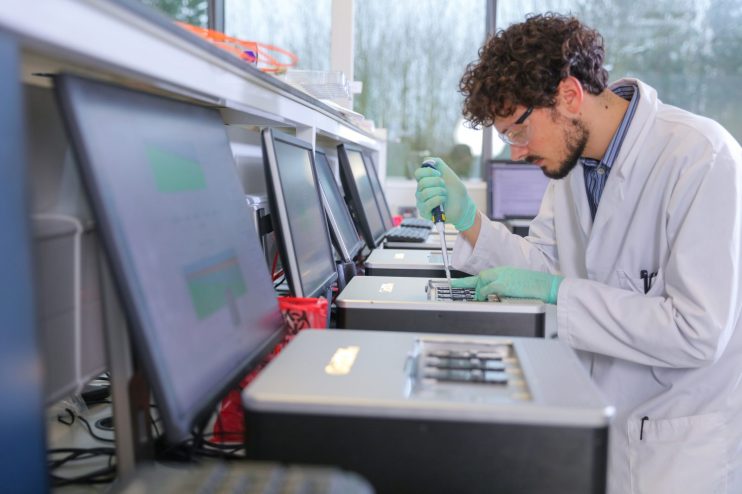Oxford Nanopore soars on London debut, touching £5bn

Shares in genome sequencing company Oxford Nanopore rocketed as much as 45 per cent this morning after its IPO, in the best-ever London market debut for a company of its size.
Oxford Nanopore shares were trading at 619p per share at market open, pushing its market cap up to £4.93bn – significantly higher than the 425p per share the company had priced its IPO, which had valued it at £3.4bn.
It’s a promising sign for London, after the firm chose to make its debut on the city’s main market – a rare move for UK life sciences firms, who have historically chosen New York’s tech-focused Nasdaq exchange.
It will also be double good news for the UK government, which has been trying to woo Britain’s life sciences and technology companies to list in the capital and last year commissioned a listing rules review by Lord Hill to enhance London’s attractiveness.
Investors’ reception to Oxford Nanopore’s listing today in London may well encourage other biotech firms to follow, which could prove crucial for the UK post-Brexit.
Spun out of Oxford University – which still owns a stake in the business – in 2005, the biotech has been propelled into the public eye during the pandemic, during which it bagged a £115m UK government contract for its handheld genome-sequencing devices that are used to track nascent Covid-19 strains.
CEO Gordon Sanghera has previously commented on the company’s loyalty to its home market as the location for its IPO and said Nanopore went through a “thorough and rigorous process” before choosing London.
“For many, many reasons is the right place to float, and some of the government moves are encouraging,” he said earlier this month.
Earlier this month, Oxford Nanopore said it made a gross profit of £26.9m in the first half of the year, and had a gross margin of 51 per cent.
Commenting on the IPO today, Sanghera said he believed the company was “only in the foothills of a long and exciting journey” and that “we are living on the cusp of the genomic era.”
“I believe that our unique technology will open up many new possibilities for positive impact,” he said, “both through enabling new discoveries in scientific research, and through more accessible, faster, richer biological insights in health, agriculture, food and understanding environments.”
As investors scrambled to gain a stake in the business and shares surged 45 per cent, Oxford Nanopore’s first day of trading eclipsed Boohoo’s in 2014, when the fast fashion retailer’s shares jumped 40 per cent.
One of the day’s big winners was FTSE 250-listed IP Group, who made an £84m profit selling some of its shares as part of the flotation, but kept a 10.3 per cent stake – which soared by as much as £167m up from book value as Oxford Nanopore’s shares shot up today.
“In some ways the hard work starts here for Oxford Nanopore, as management now needs to deliver on its strategy to justify the £4.8bn price tag placed on it in the early exchanges after its flotation, and therefore the valuation attributed to IP Group’s 10.3% stake,” said AJ Bell investment director Russ Mould.
Thus far, the $7bn DNA sequencing market has been dominated by companies across the pond, in particular $68bn Illumina, which listed on Nasdaq in 2000, and whose shares were down 0.42 per cent at Wall Street’s open today.